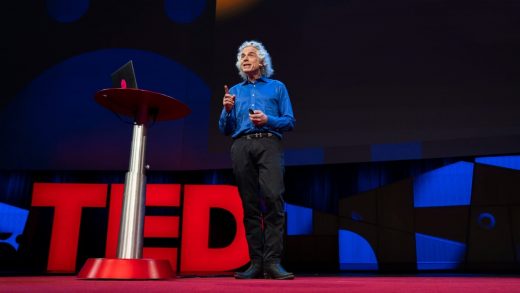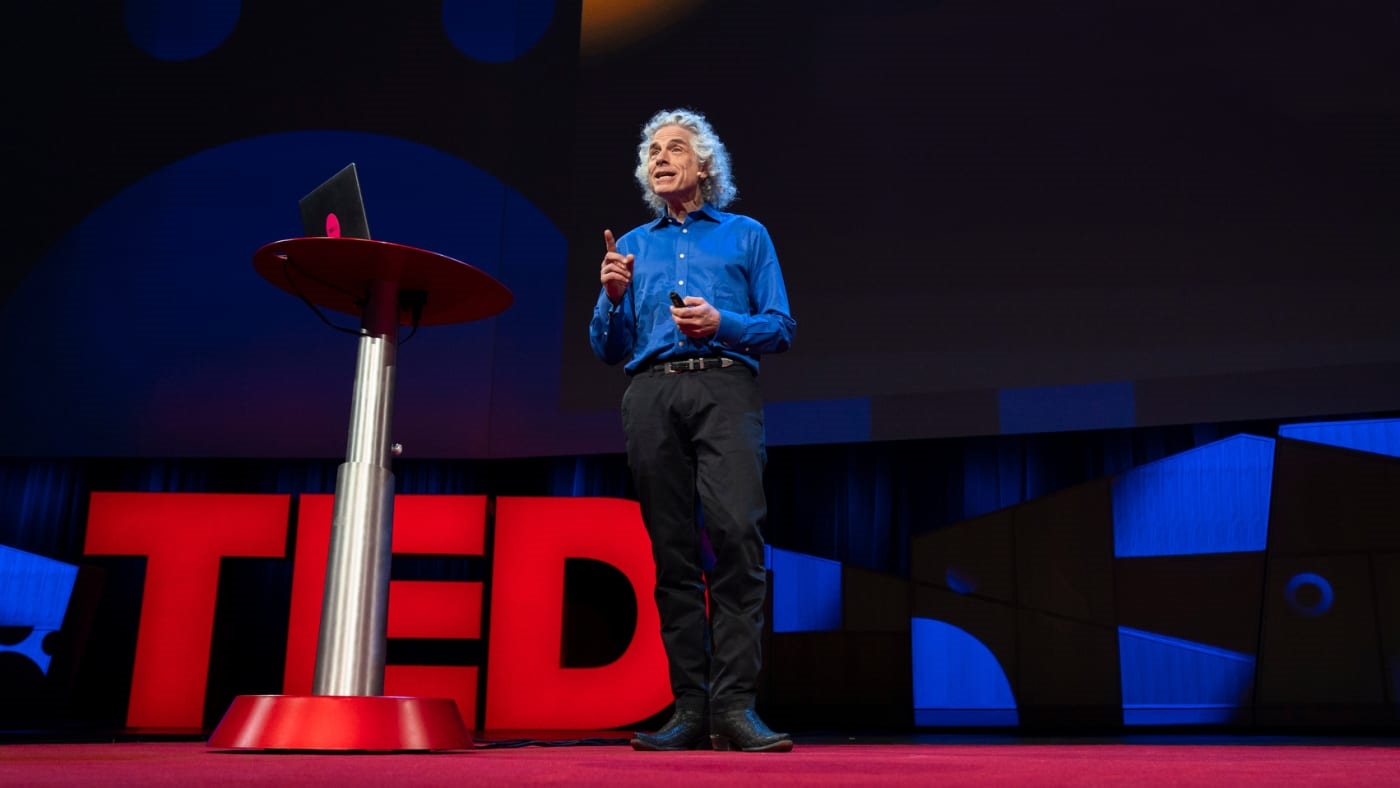Yes, The World Is Improving–But That Doesn’t Mean The Work Is Done
Author and academic Steven Pinker is a big believer in global progress, and he has the data to back it up. A graph of literacy rates around the world steadily climbing, and another of deaths by famine nose-diving. In 2017, Americans killed each other at a rate of 5.3 homicides per 100,000 people. Thirty years ago, that was 8.5 homicides among the same number of people. In that same time frame, the number of global wars fell from 23 to 12, and the number of autocracies dropped from 85 to 60.
“Progress is a testable hypothesis,” Pinker says on the stage of TED 2018 in Vancouver, where he spoke largely on ideas presented in his new book, Enlightenment Now. People, he adds, largely agree on what goes into general human well-being: It’s things like life, health, access to food, prosperity, peace, freedom, and safety.
Data exists for all of these measures, across the globe, and it largely shows them trending toward the better. So why, Pinker wonders, are people so reluctant to embrace it? “I have found that intellectuals hate progress, and intellectuals who call themselves progressives really hate progress,” Pinker says. Some of the objections he’s heard: If you believe individuals can improve their lot, you’re a “cheerleader for vulgar American can-do-ism,” or a believer in the myth of inexorable progress, or a naively optimistic Pollyanna

Pinker positions himself as none of these things. Instead, his talked framed himself and his ideas as cooly rational, data-driven, and intellectually optimistic. But the question was never whether he was right in his assessment of the data, and what it shows about the overall direction our world is trending. Rather, it’s whether this framing actually helps to understand it.
After Pinker proves with statistic after statistic that we’re much better off today than we would be were it still 1988 (ignoring, perhaps some of the backsliding of the last year), he asks: What’s causing this progress? “It’s not a mysterious arc of history bending toward justice,” he says. It’s the result of human architects working under a unified principle that Pinker describes as “Enlightenment ideals.”
The Enlightenment arose around the advancement of science and rational thought, and at the base of the movement was a belief in equality among mankind. “Human nature channeled by Enlightenment norms is the solution,” Pinker says. But this argument falls short of both explaining our current progress, and providing a framework for how we can ensure it in the future.
It’s not enough to cherry-pick a couple of statistics from either end of a 30-year spectrum to show that rates of extreme poverty have largely declined across the globe, without delving into what has happened in that time frame–what policies have been enacted at all levels of government, how populations have shifted–to explain it. Maybe rates of extreme poverty have lessened in parts of Southeast Asia because large manufacturing companies based in the U.S. or Europe have outsourced their labor to other parts of the world, creating more jobs. In Pinker’s framing, this is an unequivocal good, because it feeds neatly into the data visualizations. But talk of this development as pure progress is too facile. It doesn’t, for instance, take into account the quality of life endured by these workers who may have been lifted out of extreme poverty–the abuses and exploitations they might face.
Same holds true for analysis of, say, education rates in America. Pinker’s graph would show a big-picture positive: Last year, high school completion rates reached an all-time high. But looking just at those numbers obscures the disparities in educational experience across communities, and how low-income students of color are still often segregated into underfunded, lower-quality schools.

Pinker’s blanket statistics don’t acknowledge that progress is coming at different rates to different people. Systemic racism and inequities still exist in America, and across the world. Collapsing the experiences of different populations and different communities into one neat narrative under the umbrella of progress does not work. What it does do is foster an undue reliance and faith in the systems we have in place–like social services, benefits, and humanitarian and developmental aid–without questioning how we might improve them or build something better and more responsive to the rapidly changing conditions across the world.
Can we, for instance, continue to rely on our safety net of food stamps and tax credits to lift people out of poverty once automation scales and renders low-skill jobs obsolete? Perhaps we should be pushing for solutions like Universal Basic Income, which look radically different from the systems we have in place now. Pinker describes the reduction in deaths by natural disasters over the last few decades as a result of our cities’ improved resilience, will our environmental protection tactics hold up as sea level rise becomes an ever-more-present threat? No. Under Pinker’s reasoning, it’s too easy to look to the general upward trend of the last several decades and assume it will keep climbing untouched.
Pinker, in his talk, says “ignoring progress fosters fatalism.” That might be true, but the progress also took hard work, and discussing it as inevitable fosters complacency. The progress we’ve made should only ever be looked at through a critical lens of what worked, what didn’t, what the larger ripple effects were, what’s still left to be done, and how might we change our approach going forward to effect better, more lasting change. Granted, it’s not as neat as a collection of line graphs, but confronting the more messy reality is what will ensure Pinker’s vision of progress keeps moving forward.
(16)



